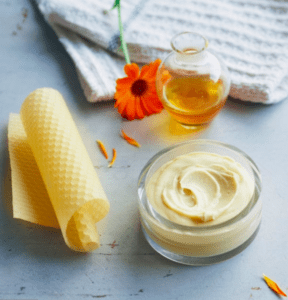
03 Jul Quick Guide to Skin Care Ingredients
The labels of anti-aging products promote some impressive sounding ingredients. What are they? Can they help your skin?
This glossary defines many of the terms or ingredient names you are likely to encounter. But keep in mind that most cosmetic products are not regulated and in most cases there is little or no published evidence to substantiate their effectiveness. From the list below, topical vitamin C and retinol have the most clinical evidence for anti-aging.

- Alpha lipoic acid: An antioxidant claimed to have a modest effect in decreasing skin roughness and wrinkles.
- Antioxidants: Substances that neutralize free radicals, damaging molecules that accelerate cellular aging and promote cancer.
- CoenzymeQ10: Ubiquinone, an antioxidant that protects against UVA and may modestly reduce wrinkle depth.
- Copper peptide: Copper is a metal with antioxidant properties found in every cell in the human body. Copper peptides enhance wound healing and may modestly increase collagen and elastin production.
- Dimethylaminoethanol (DMAE): A neurotransmitter produced in the brain; an extract in gel form is purported to reduce wrinkles, neck sagging, and circles under the eyes.
- Genistein: A derivative of soy and an antioxidant; it inhibits UVB damage to the skin.
- Green tea: An antioxidant and an anti-inflammatory agent; it may inhibit UV damage and photoaging.
- Growth factors: Substances that occur naturally in the human body and in plants; they contribute to wound healing and may repair photodamaged skin.
- Kinetin: N6-furfuryladenine; a plant growth factor and an antioxidant claimed to reduce wrinkles, smooth skin texture and even out skin tone.
- Niacinamide: Vitamin B3; an antioxidant that is promoted to help reverse signs of photo aging.
- Peptides: Short-chain amino acids that may assist with production of collagen and elastin or have other beneficial effects on the skin.
- Retinoid: Any of several derivatives of vitamin A that have been shown to reduce photodamage and increase collagen production.
- Vitamin C (ascorbic acid): In topical preparations, it is thought to reduce wrinkles and improve skin texture and tone.
- Vitamin E: An antioxidant vitamin; limited research suggests some protective effects for the skin.
To your best health!
Naturopathic Physician, Menopause Clinician, Acupuncturist, and Health Educator

